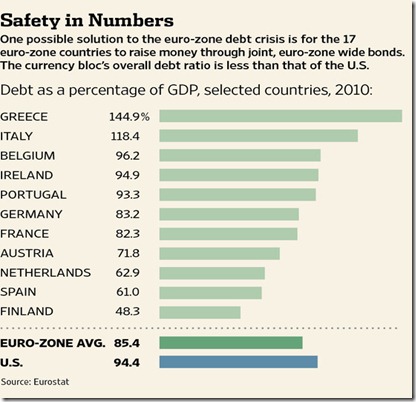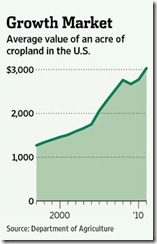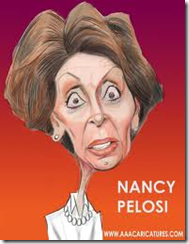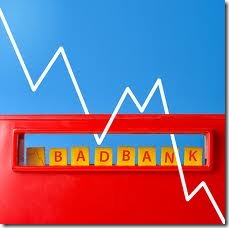News Monday that Euro-zone leaders are negotiating a groundbreaking pact, according to the WSJ, to further cement the currency bloc from fracturing. The deal, which would involve some arm twisting ( but more for show than go), would also allow the European Central Bank (ECB) to intervene more aggressively. It is expected that something will be announced by the first week in December. The shortened trading week was all about problems in Europe and how the bi-partisan Super Committee failed to reach any compromise on tackling our deficit. And now for the week as it unfolded…
Today’s Value Investing Lesson: Warren Buffett and Benjamin Graham are two of the world’s best value investors. Value investing is nothing more than buying a stock on the cheap and, if possible, one that is trading at a price that is less than the liquidation value of the underlying company. Historically value investing produces greater total returns than investing for growth. So what stock or industry, I wondered, could I buy that is trading at or less than its book value? It doesn’t take a Warren Buffett or Peter Lynch to zero in on the beaten up sector of financials-especially banks. Our friends at 247WallStreet.com ran a screen on bank stocks that showed Bank of America in July 2011 had a book value of $12.65 and last week the stock was selling for less than $5.50! Wow! It seems to be a screaming buy. But, and here’s the big but…the book value of BAC has been slowing dripping downward since the beginning of the year. It was worth more in book value in January than it is in November. While no one can say that someone is messing with numbers the fact is that Bank of America is not making money, has a huge losing portfolio of mortgages and has issues on where to make money going forward. This tells us that book value may continue to soften. How can that be? More loans than expected can sour. Opportunities to make money may go south (much like the debit card fees of a few months back) or regulations could tighten further. In addition investors are unsure how much Euro debt the bank is exposed to. What all this tells us is that stock prices in some banks may stay depressed or even go lower for the extended future while the book value continues to deteriorate. And unless we want our money locked up, possibly doing nothing for a very long time, we should look elsewhere for other value plays. And, that’s the reason why some value- like stocks are being ignored in this crazy market. A few hedge fund managers have caste aside the value crowd concerns and leaped into financials. Greenblatt, Pabrai and Watsa are three that bought and own huge amounts of the banking industry and I’ll have more later in the blog. John Paulson’s hedge fund is down 50% this year because of his huge bets on banks and financials.
Black Friday Sales Strongest Since 2007! Never  underestimate the American shopper. Give them sales and they will come. Sales were up 6.6% from a year ago and on-line sales grew 24.3%. This may be the year when pre-holiday promotion slowly fizzles as less product is available the closer we get to the actual holiday. Grab the deals while you can!
underestimate the American shopper. Give them sales and they will come. Sales were up 6.6% from a year ago and on-line sales grew 24.3%. This may be the year when pre-holiday promotion slowly fizzles as less product is available the closer we get to the actual holiday. Grab the deals while you can!
 Election Year Investing: Here’s the deal- if you’re the President and want to get re-elected you need to make people happy- especially investor people, and do it as close to the election as possible. Marshall Nickles, EdD of Pepperdine University did a study that showed past President’s stock market results were actually the lowest 1.87 years into their term. This coincided with mid-term and not presidential elections. The stock market did rather well, for the most part, in presidential election years. The author of the study concluded that investors would be best served if they invested about 27 months into a President’s administration and sell directly after. Wars, recessions and bear markets tend to start or occur in the first half of the term and bull markets, in the latter. Since 1928 the S&P 500 index was down only three times in Presidential election years.
Election Year Investing: Here’s the deal- if you’re the President and want to get re-elected you need to make people happy- especially investor people, and do it as close to the election as possible. Marshall Nickles, EdD of Pepperdine University did a study that showed past President’s stock market results were actually the lowest 1.87 years into their term. This coincided with mid-term and not presidential elections. The stock market did rather well, for the most part, in presidential election years. The author of the study concluded that investors would be best served if they invested about 27 months into a President’s administration and sell directly after. Wars, recessions and bear markets tend to start or occur in the first half of the term and bull markets, in the latter. Since 1928 the S&P 500 index was down only three times in Presidential election years.
Super- dud-Committee – Billed as the go-to-folks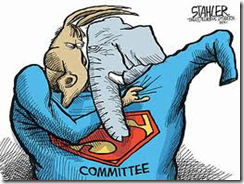 failed!
failed!
The markets sensed this from the get-go Monday last and fell 300 points, or so, before climbing back and ending the day at a loss of 250 points on the Dow. Gold wasn’t the fav du jour as investors ran to cash, especially the dollar. Gold ended up at the lowest in 4 weeks at $1678.60! ( didn’t i write about this earlier in the Fall?) The weakest of the Blue Chips were Disney, HP and Bank of America. Volume, which is the key- sometimes- was pathetic. At the half way mark of the trading day only a quarter of the shares traded in an average day saw action which is telling in its own way. 
Above the folks that couldn’t (wouldn’t) get er done!
Michael Kahn – Technical Analyst at Barrons.com writes that the market’s big drop Monday can be blamed directly on the folks above who failed to do their job. (I just got to say that if they were hired to play ball, engineer cars or sweep out classrooms, and did the same kind of work they’ve shown handling the nation’s welfare, they’d have been out of work in a heartbeat!) Kahn write that technically stocks are heading over the edge, probably to revisit last summer’s numbers. The technical's, he writes, are not impressive. He caveats that indeed volume was thin and the European problem still holds sway on a day to day basis.
The now defunct MF Global is not missing $600 million of investor money.  It is estimated that it is missing $1.2 billion of investor money.The trustee reports much of the moola is stashed overseas and he has to review some 38,000 customer accounts.
It is estimated that it is missing $1.2 billion of investor money.The trustee reports much of the moola is stashed overseas and he has to review some 38,000 customer accounts.
And the good news is or was…. Irwin Kellner at  MarketWatch reported that the economic outlook may indeed be brightening. Earlier in the summer consumer spending was off. It is the engine of our economy and accounts for about 70% of our nation’s get up and go. That cutback in spending has caused commodity prices to fall, retailers to reduce prices on products and services without hurting profits, and bring the ye ole consumer back. In other words, Monsieur Kellner now sees the glass half-full rather than half-empty and the only thing that could put the kibosh on the growing domestic recovery – OMG! -failure of the Super Committee.
MarketWatch reported that the economic outlook may indeed be brightening. Earlier in the summer consumer spending was off. It is the engine of our economy and accounts for about 70% of our nation’s get up and go. That cutback in spending has caused commodity prices to fall, retailers to reduce prices on products and services without hurting profits, and bring the ye ole consumer back. In other words, Monsieur Kellner now sees the glass half-full rather than half-empty and the only thing that could put the kibosh on the growing domestic recovery – OMG! -failure of the Super Committee.
The Cramer  on NBC’s Today show said the market drop Monday wasn’t about the super committee’s failure but about Europe. ‘Europe’s problems are five times that of the United States,’ said he. He also said he wouldn’t be putting new money to work at these levels…at least for now. So what’s the mouth going to talk about at 6PM & 11PM?
on NBC’s Today show said the market drop Monday wasn’t about the super committee’s failure but about Europe. ‘Europe’s problems are five times that of the United States,’ said he. He also said he wouldn’t be putting new money to work at these levels…at least for now. So what’s the mouth going to talk about at 6PM & 11PM?
From The Department of ‘Someone’s Got To Be The Grown Up’ – In Europe and in the United States 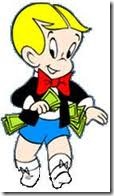 self-preservation among politicians has to take hold and initiate common sense changes and policies to get economies back on track. It seems to me that language that initiates fear with little basis is puerile at best- destructive at the worst. PIMCO CEO Mohamed A. El-Erian was quoted by Bloomberg that U.S. Economic Conditions are Terrifying. There didn’t seem to be anything new that El-Erian said in the article that seemed more frightening, let alone terrifying. Maybe you had to be there…
self-preservation among politicians has to take hold and initiate common sense changes and policies to get economies back on track. It seems to me that language that initiates fear with little basis is puerile at best- destructive at the worst. PIMCO CEO Mohamed A. El-Erian was quoted by Bloomberg that U.S. Economic Conditions are Terrifying. There didn’t seem to be anything new that El-Erian said in the article that seemed more frightening, let alone terrifying. Maybe you had to be there…
JP Morgan sees it differently: On Friday it came out  with its fixed income outlook and said that the crisis in Europe would likely get worse before better and the spillover to the United States would ultimately be contained. They recommended High Yield and Emerging Market Debt for 2012.
with its fixed income outlook and said that the crisis in Europe would likely get worse before better and the spillover to the United States would ultimately be contained. They recommended High Yield and Emerging Market Debt for 2012.
Susan Pullman at WSJ, reported on how discussions with Fed Chief The Ben Bernanke turn into investment riches.  The Federal Reserve Chief holds conversations with large institutional hedge fund managers in gauging which way policies by the Fed will be accepted or aid the economic health of the country. Those conversations, which are reported to be confidential and coded, often expose possible Fed action which money managers immediately pass on to their clients. One such instances was the possibility of the Federal Reserve buying longer maturity bonds. This evolved into what we know as ‘The Twist’ in which the
The Federal Reserve Chief holds conversations with large institutional hedge fund managers in gauging which way policies by the Fed will be accepted or aid the economic health of the country. Those conversations, which are reported to be confidential and coded, often expose possible Fed action which money managers immediately pass on to their clients. One such instances was the possibility of the Federal Reserve buying longer maturity bonds. This evolved into what we know as ‘The Twist’ in which the  Federal Reserve set about buying the long bond. Institutional money managers were able to take advantage of the buying of longer maturities before any news leaked to us lesser mortals. It’s all about buying on rumor, or what you deduce is the rumor, and selling on the actual news.
Federal Reserve set about buying the long bond. Institutional money managers were able to take advantage of the buying of longer maturities before any news leaked to us lesser mortals. It’s all about buying on rumor, or what you deduce is the rumor, and selling on the actual news.
Oil trading a bit under $100 a barrel on concerns of…shucks, I don’t know why oil is trading as high as it is. In fact oil should be much lower with an economic slowdown in Asia, United States and Europe. News that oil shipper  Frontline may run out of money surprised traders and the stock fell 41% Tuesday and the Overseas Shipbuilding Group ETF (OSG) fell 17% on news that there were too many ships and not enough business to cart oil from hither to yon. Some traders say that oil is more of a fear trade is because of a possible disruption as tensions mount with Iran.
Frontline may run out of money surprised traders and the stock fell 41% Tuesday and the Overseas Shipbuilding Group ETF (OSG) fell 17% on news that there were too many ships and not enough business to cart oil from hither to yon. Some traders say that oil is more of a fear trade is because of a possible disruption as tensions mount with Iran.
Time Magazine reported on the 50 best and worst inventions of 2011. There were many top drawer inventions such as Twitter based hedge funds, capturing Twits and converting them into investment portfolios; but my favorite was the Perfect Razor made from iridium and each razor blade 5,000 times thinner than a human hair.The cost $100,000 but comes with lifetime sharpening service.The worst came from Japan which manufactured artificial meat from sewage. Pass the mustard
Ford versus General Motors…the old rivalry is back. Both stocks are down 39% in 2011 and Hilary Kramer at  InvestorPlace.com put in her two bits which of the two companies she likes the best and the winner – Ford. The Hilary said the stock should double and a dividend announcement in 2012 wouldn’t hurt its chances to get there. From your lips, my dear …
InvestorPlace.com put in her two bits which of the two companies she likes the best and the winner – Ford. The Hilary said the stock should double and a dividend announcement in 2012 wouldn’t hurt its chances to get there. From your lips, my dear …
Dunno  if I’m thrilled with the idea of higher taxes while lots of folks out of work and personal savings rate is down. Consumer spending has chalked up its fifth consecutive month in a row of positive increases. This at a cost to personal savings as consumers are back at the malls. Talking heads criticize consumers saying they haven’t established a sufficient buffer of savings before spending.
if I’m thrilled with the idea of higher taxes while lots of folks out of work and personal savings rate is down. Consumer spending has chalked up its fifth consecutive month in a row of positive increases. This at a cost to personal savings as consumers are back at the malls. Talking heads criticize consumers saying they haven’t established a sufficient buffer of savings before spending.  and if we don’t spend we’re un-American and not contributing to the growth of the country….sometimes you just can’t win and please everyone.
and if we don’t spend we’re un-American and not contributing to the growth of the country….sometimes you just can’t win and please everyone.
Back to More Value Investing: Charles Sizemore at MarketWatch blog likes master investors Mohnish Pabrai (author Dhandho Investor), Joel Greenblatt (Little Book That Beats The Market) and Prem Watsa ( Canadian but don’t let that be held against him); all strong institutional investors. Charles point is that two of the above three have huge positions in financial; especially the banks. They are also huge Bulls and the point being made is that many of us should take comfort in knowing that we are on the same side of the trade with some of the brightest value investors in the business. 
 Mohnish
Mohnish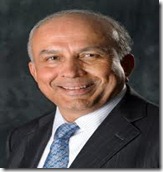 Watsa
Watsa
Germany auction of 10-year bonds went ‘kaput’! The German government was only able to sell about 60% of the Wednesday auction of 10-year bunds with an average yield of 1.98%. Either this was a message by investors for the Germans to show leadership, forget the hyper-inflation of yore and order the Central Bank to start the printing money; or there is a real concern regarding the future health of Germany. 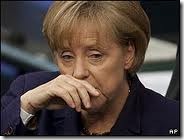 In any case this is a severe wake-up. Anyone will tell you that the bond market is the barometer that usually leads recoveries or recessions. Our markets fell 0ver 200 points on the Dow. There isn’t a sector in the market that is immune as everything goes down at once and comes back at once. Asset allocation just doesn’t work in 2011 – gold stuck around $1700. Euro down 1% against the dollar. Germany doesn’t want to see the Euro disappear. The German Mark was a strong currency and this caused pain for German exports. The Euro allowed the selling of German goods to other countries using a weaker currency and making Germany extremely competitive globally. In the sophisticated world of economics this is Germany now being in-between the rock and the hard place. ( I’m not kidding, the phrase was actually first used to describe the U.S. banker’s panic of 1907.)
In any case this is a severe wake-up. Anyone will tell you that the bond market is the barometer that usually leads recoveries or recessions. Our markets fell 0ver 200 points on the Dow. There isn’t a sector in the market that is immune as everything goes down at once and comes back at once. Asset allocation just doesn’t work in 2011 – gold stuck around $1700. Euro down 1% against the dollar. Germany doesn’t want to see the Euro disappear. The German Mark was a strong currency and this caused pain for German exports. The Euro allowed the selling of German goods to other countries using a weaker currency and making Germany extremely competitive globally. In the sophisticated world of economics this is Germany now being in-between the rock and the hard place. ( I’m not kidding, the phrase was actually first used to describe the U.S. banker’s panic of 1907.)
Europe has similar if not more difficult problems than we do….German Chancellor Merkel reiterated Thursday her stance on not pursuing Euro Zone bonds or changing the charter of European Central Bank. Her acquiescence would make Germany the default co-signer on all European debt - something she and Germany do not want. It’s politics in Europe –same as in the U.S. While no one knows exactly what’s going on in Europe any more than we do in our own capitol; it’s individuals versus common good on both sides of the Atlantic and until that changes we’re in for a rough patch.
 Time out for AT&T as the company steps back to re-address their merger with T-Mobile. AT&T will pay T-Mobile $4 billion with $3 billion in promised break-up fees and the other billion for spectrum. Shares fell to $27.60. The companies removed the merger deal application and instead will press their case of a merger before a judge next year. And does this mean that Sprint & Clearwire are the winners? Whispers that the two beaten up shares are possibly poised for a comeback. Bob Citrone, hedge fund manager, added Sprint to his portfolio this past quarter. Sprint traded around $2.50 and Clearwire at $1.5o. on Wednesday, Credit Suisse also likes both long-term. The AT&T and T-Mobile merger may be as dead as yesterday’s Thanksgiving turkey. This may spell some problems for AT&T going forward.
Time out for AT&T as the company steps back to re-address their merger with T-Mobile. AT&T will pay T-Mobile $4 billion with $3 billion in promised break-up fees and the other billion for spectrum. Shares fell to $27.60. The companies removed the merger deal application and instead will press their case of a merger before a judge next year. And does this mean that Sprint & Clearwire are the winners? Whispers that the two beaten up shares are possibly poised for a comeback. Bob Citrone, hedge fund manager, added Sprint to his portfolio this past quarter. Sprint traded around $2.50 and Clearwire at $1.5o. on Wednesday, Credit Suisse also likes both long-term. The AT&T and T-Mobile merger may be as dead as yesterday’s Thanksgiving turkey. This may spell some problems for AT&T going forward.
Netflix is down again on news that it wants $400 million in capital and will get it by selling more stock and issuing debt. Netflix, as you remember, dear reader, was the  golden goose that just kept on moving higher and higher (like Green Mountain only different industries), until misplaced direction in fees caused the whole thing to collapse. Shares moved down again to close at $68 Thanksgiving eve. A new fair value estimate by Tony Wible at Janney Capital on the stock is $49-$51 a share. Shares topped $300 only a few weeks earlier. Jimmy Cramer got it right the other day saying shares were toxic.
golden goose that just kept on moving higher and higher (like Green Mountain only different industries), until misplaced direction in fees caused the whole thing to collapse. Shares moved down again to close at $68 Thanksgiving eve. A new fair value estimate by Tony Wible at Janney Capital on the stock is $49-$51 a share. Shares topped $300 only a few weeks earlier. Jimmy Cramer got it right the other day saying shares were toxic.
Markets approaching 7 week lows….
Luxury Real Estate in the Big Apple is so hot that real estate agents have resorted to cold-calling existing owners of condos and townhouses to prospect for sellers!  Sandy Weill, he of Citigroup fame, has put his 6,700 square foot condo on the market for $88 million. What’s prompting this mania? Seems foreign buyers see value in the states and are swarming in, cash in hand to snap up what they see as bargains. Let’s hope for some trickle down. Bruce Willis is also selling his Idaho rancho for $15 million.
Sandy Weill, he of Citigroup fame, has put his 6,700 square foot condo on the market for $88 million. What’s prompting this mania? Seems foreign buyers see value in the states and are swarming in, cash in hand to snap up what they see as bargains. Let’s hope for some trickle down. Bruce Willis is also selling his Idaho rancho for $15 million.
High Yield bonds used to be called Junk Bonds ( In the day of Mike Milliken who used them extensively to build businesses in the 70s and 80s and then went to jail in the 90s. Not before making hundreds of millions for himself  and others) The firm he worked for, Drexel Burnham, did such deals as the RJR Nabisco and Ted Turner MGM/UA takeover using junk bonds. High yield bonds are those instruments issued from companies that have less than investment grade risk and therefore pay more to borrow money than those that do. These bonds have little to do with money markets as night has to day. However, a Schwab investment company manager, according to Financial Advisor News, thought it prudent to tell clients that the Schwab YieldPlus fund was as comparable to a money market- except the fund fell almost $2 billion by investing in private issuer mortgage backed securities. The exec was fired and Schwab ended up paying $119 million to resolve the SEC lawsuit and $235 million to settle investor lawsuits. Know what you invest in or find out from someone that does.
and others) The firm he worked for, Drexel Burnham, did such deals as the RJR Nabisco and Ted Turner MGM/UA takeover using junk bonds. High yield bonds are those instruments issued from companies that have less than investment grade risk and therefore pay more to borrow money than those that do. These bonds have little to do with money markets as night has to day. However, a Schwab investment company manager, according to Financial Advisor News, thought it prudent to tell clients that the Schwab YieldPlus fund was as comparable to a money market- except the fund fell almost $2 billion by investing in private issuer mortgage backed securities. The exec was fired and Schwab ended up paying $119 million to resolve the SEC lawsuit and $235 million to settle investor lawsuits. Know what you invest in or find out from someone that does.
Time Magazine reports from the desk of Fareed Zakaria,that China has enjoyed decades of peace, stability and free trade and seems content to act narrowly and exclusively in its own interest, unconcerned about helping the global good. Was this a sly hint to the superpower to get involved in the global economies or simply pre-election bashing?
Quality over Quantity? InvestorPlace.com suggested  investor explore the following Fav Five stocks: Ralph Lauren (A trip up north doesn’t quite feel the same unless I stop on the way and shop at his clearance store); Nordstrom (For some reason they are known for their shoes but I don’t get it); Tiffany & Company (Anything in the iconic blue box works for me – the rich always end up at Tiffany while I’m at Amazon); Coach (They just came out with a less expensive lady’s handbag that is…expensive!) and for good measure- Dollar Tree (Even the Grosse Pointers and Bloomfieldites sneak in to load up on their chotchkies. In the 60s you’d find their grandfolk at the downtown Birmingham SS Kresge store.)
investor explore the following Fav Five stocks: Ralph Lauren (A trip up north doesn’t quite feel the same unless I stop on the way and shop at his clearance store); Nordstrom (For some reason they are known for their shoes but I don’t get it); Tiffany & Company (Anything in the iconic blue box works for me – the rich always end up at Tiffany while I’m at Amazon); Coach (They just came out with a less expensive lady’s handbag that is…expensive!) and for good measure- Dollar Tree (Even the Grosse Pointers and Bloomfieldites sneak in to load up on their chotchkies. In the 60s you’d find their grandfolk at the downtown Birmingham SS Kresge store.)
Owning a House just got Cheaper Than Renting: The WSJ 3rd quarter survey in 28 markets found  housing declined in all but five markets. Meanwhile rent rates have increased while mortgage rates have fallen to about 4%. The result that buying is cheaper than renting in 12 markets. In Atlanta a mortgage with 20% down is at $539 (average home) while rent hovers in the $840 a month range (Markets eventually will do what politicians refuse to do.)
housing declined in all but five markets. Meanwhile rent rates have increased while mortgage rates have fallen to about 4%. The result that buying is cheaper than renting in 12 markets. In Atlanta a mortgage with 20% down is at $539 (average home) while rent hovers in the $840 a month range (Markets eventually will do what politicians refuse to do.)
Give Thanksgiving! New York Finance professor Baruch Lev admits to being thankful for, ‘a divided  government and do nothing Congress. With a unified Congress, we would have stringent climate change laws, higher taxes on millionaires and billionaires, and public-employee pension fund bailouts. We would be closing in on Greece without Germany bailing us out.’
government and do nothing Congress. With a unified Congress, we would have stringent climate change laws, higher taxes on millionaires and billionaires, and public-employee pension fund bailouts. We would be closing in on Greece without Germany bailing us out.’
Finally-Investors are losing patience with the EuroZone politicians. ‘Leadership understands,’ according to Italian Prime Minister Monti, ‘…that a collapse of Italy would eventually lead to the end of the euro….resulting in unforeseeable consequences.’ The strains on the Euro zone are adding additional pressure on German and French leaders which have so far failed to quell investor concerns, according to Friday’s WSJ. 
Questions call Paul @ 877 783 7080 or write him at pstanley@westminsterfinancial.com. Share this blog with someone who cares about their money.



